Robin Talley Talks Representation, Communication, and Speaking Out
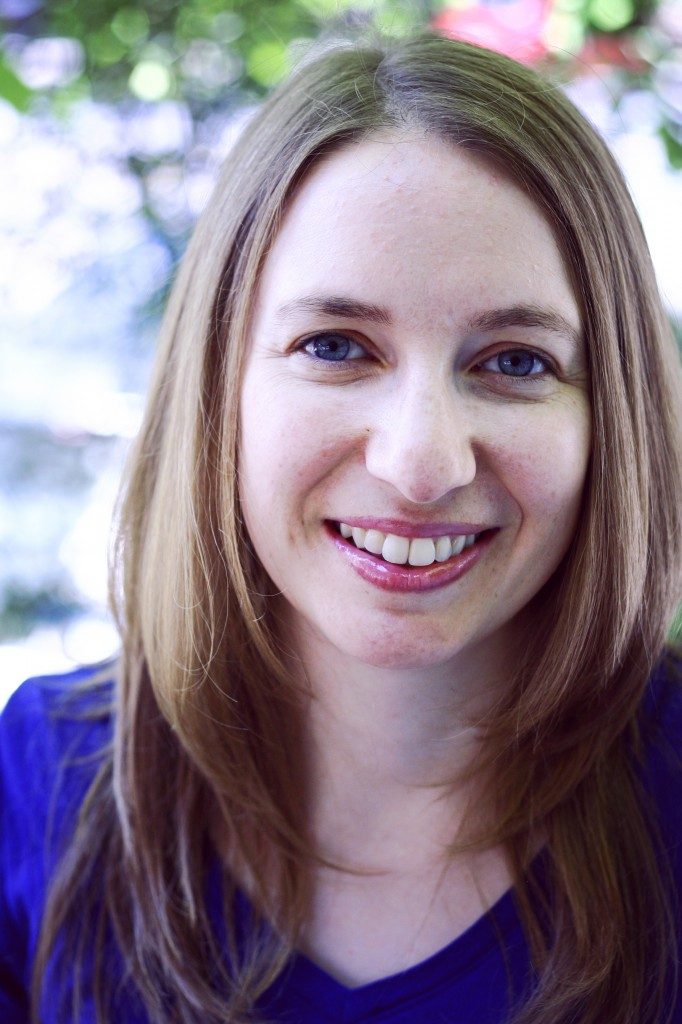
Robin Talley is a New York Times best-selling young adult author who writes specifically about LGBTQ+ women, so she’s exactly the kind of author we at The Geekiary like to talk about!
A few years ago, I picked up a copy of Robin’s debut novel, Lies We Tell Ourselves, at the BookExpo. I was blown away by it (you can read my recommendation here), so when I was offered the chance to interview Robin about her new book, I leaped at the chance.
Our Own Private Universe, which comes out tomorrow, is about a young girl exploring herself and her sexuality for the first time.
Fifteen-year-old Aki Simon has a theory. And it’s mostly about sex.
No, it isn’t that kind of theory. Aki already knows she’s bisexual—even if, until now, it’s mostly been in the hypothetical sense. Aki has dated only guys so far, and her best friend, Lori, is the only person who knows she likes girls, too.
Actually, Aki’s theory is that she’s got only one shot at living an interesting life—and that means she’s got to stop sitting around and thinking so much. It’s time for her to actually do something. Or at least try.
So when Aki and Lori set off on a church youth-group trip to a small Mexican town for the summer and Aki meets Christa—slightly older, far more experienced—it seems her theory is prime for the testing.
But it’s not going to be easy. For one thing, how exactly do two girls have sex, anyway? And more important, how can you tell if you’re in love? It’s going to be a summer of testing theories—and the result may just be love.
How did the idea for Our Own Private Universe come about?
It started with a classic YA novel, Judy Blume’s Forever. That book, originally published in 1975, was one of the first to feature a teen couple who fell in love and had sex ― but without getting punished for it via pregnancy or some other disaster (which at that time was the norm in children’s publishing). Instead, the focus of the book was on the romance and the emotions of it all, as well as the practicalities of birth control, awkwardness, and the like. I read Forever when I was in middle school, and I’d always wished there were another book like it, but about a relationship between two girls. Then it occurred to me ― well, I could always try to write that book myself. So that’s how Our Own Private Universe got its start.
Is there anything specific about YA that attracts you to it? Do you have any plans to write in a different genre?
I love writing about that period where you’re right on the cusp of adulthood, but not quite there ― where you’re almost emotionally ready to set forth into the world on your own, but your circumstances are still holding you back. It’s also really interesting to focus on the first time a character is experiencing something, whether it’s romance, or sexual feelings, or really intense friendships, or something else. The teen years are full of firsts that are fascinating to explore. And I don’t have any current plans to write in another age category, but I’ve had a middle-grade idea bouncing around in my head for a while, so you never know…
With increasing calls for diversity in media, and writing a main character who is a different race than yourself, did you feel any added pressure to portray Aki in a certain way?
Any time I write a character who’s a member of a marginalized community that I’m not a part of myself (Aki, the main character of Our Own Private Universe, is black, and I’m white), I know I need to put in a lot of hard work to make sure that I’m writing that character respectfully. It’s a responsibility that I take very seriously. With Aki, I worked hard to consider the complexities of how each aspect of her background influenced her life and her perspective. I also invited black beta readers to give me unvarnished feedback during the revision process, and I make sure to read a wide array of books written by black authors about black characters.
Did you do anything specific to get into Aki’s headspace, so that writing her point of view would feel more genuine?
Aki is obsessed with music of all genres, and her favorite musician is Prince. I’m not quite as into music as she is, so when I was writing Our Own Private Universe I listened to music that Aki liked whenever I was just hanging out around the house, cooking dinner, etc. It was awesome, and I got to hear a lot of amazing recordings of Prince’s live performances.
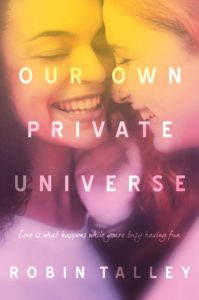 Much of Our Own Private Universe focuses on the importance of honest communication in relationships. What advice would you give to teenagers who find themselves in situations similar to Aki’s and Christa’s?
Much of Our Own Private Universe focuses on the importance of honest communication in relationships. What advice would you give to teenagers who find themselves in situations similar to Aki’s and Christa’s?
If you really care about someone, just be up front with them from the beginning. It’s always tempting to portray yourself as who you think that person wants you to be, but (A) what if you’re wrong about what they really want? and (B) that never works in the long term anyway. If you’re going to have a true connection with someone, that means letting them get to know the real you ― flaws and all. (And often a person’s “flaws” wind up being the most interesting things about them, so just go ahead and let it all hang out!)
There is a lot of discussion about labels in our society, especially with erasing certain aspects of the spectrum (i.e. a television show saying someone is “not into labels” instead of just calling them bisexual). With Aki and Christa having a similar conversation about how they identify, do you feel that labels are important?
The importance of labels totally varies from individual to individual. I think for teenagers, though, labels can be endlessly fascinating, because when you’re young you’re actively engaged in the process of figuring out who you are and who you want to be. Labels present a handy set of pre-identified options to consider, which is really useful. I know many people of all ages who have identified with different labels at different times in their lives, and for whom the process of considering those labels has been really helpful in defining themselves both privately and publicly. Personally, I’m less into labels than I used to be when I was younger ― for example, I prefer to use queer as an umbrella term for myself, rather than a more specific sexuality label like lesbian or bisexual, etc. ― but I think it’s awesome that some folks identify strongly with specific labels. I think this is just one of the many ways in which language is awesome and helpful to all of us.
The kids in Our Own Private Universe start becoming more politically and socially aware, especially about LGBT+ issues. Considering the recent US presidential election, what words do you have for teenagers who are worried about the future?
First of all, I’m worried about the future, too. We all are. It’s a scary world, and these are particularly scary times. But we can’t let our fear hypnotize us into silence. We have to keep speaking out about the wrongs we see happening, whether that means calling your elected officials, going to a rally, or speaking up when you see someone being unfairly treated in your school or community. Remember, the people who are against fairness want us to be silent. That’s how they plan on winning. But there are more of us ― more people who care about social justice, who believe in equality ― than there are of them. We can’t ever let them forget that.
In the acknowledgements, you mention that Our Own Private Universe is a book that you wish you’d had to read as a teenager. What books did you read as a teenager that resonated with you?
I didn’t read much YA then that truly resonated with me (aside from the aforementioned Judy Blume canon), simply because I was a teen in the 1990s and there wasn’t nearly as much quality YA then as there is now. The books that spoke to me most deeply as a teen tended to be dark, though. I read Stephen King’s The Stand over and over again. I also read The Handmaid’s Tale several times, and The Stranger, too. Books were a safe space for me to think about dark, serious themes, which I think is still the case for a lot of teens today.
——-
Thanks again, Robin Talley, for taking the time to speak with me!
Author: Jamie Sugah
Jamie has a BA in English with a focus in creative writing from The Ohio State University. She self-published her first novel, The Perils of Long Hair on a Windy Day, which is available through Amazon. She is currently an archivist and lives in New York City with her demon ninja vampire cat. She covers television, books, movies, anime, and conventions in the NYC area.
Help support independent journalism. Subscribe to our Patreon.
Copyright © The Geekiary
Do not copy our content in whole to other websites. If you are reading this anywhere besides TheGeekiary.com, it has been stolen.Read our

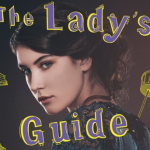
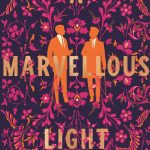
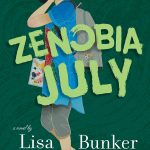
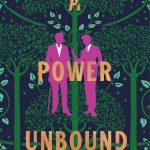
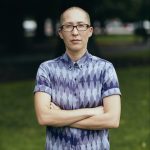
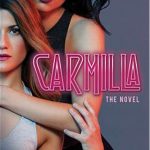
1 thought on “Robin Talley Talks Representation, Communication, and Speaking Out”
Comments are closed.